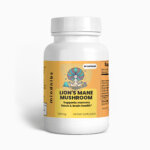
“Is Organic Coffee Really Better for You? Let’s Find Out”
Are you a coffee lover who also emphasizes healthy living? Then you must have heard of organic coffee, which is touted to be the healthier alternative to conventional coffee. But is it really true that organic coffee is better for you? Let’s take a closer look at this popular trend and find out if it’s worth the hype. In this article, we will explore the differences between organic and non-organic coffee, learn about the health benefits and drawbacks of each, and help you make an informed decision on what coffee to grab for your next caffeine fix. So sit back, grab a cup of joe, and let’s get started!
1. Introduction: Why Organic Coffee has been Gaining Popularity
Organic coffee has been gaining popularity due to a shift towards healthier and more sustainable lifestyles. Customers are demanding products that are not only beneficial to their health, but also the environment. This has led to an increase in demand for organic coffee, which is grown using natural methods without the use of pesticides or synthetic fertilizers. Organic coffee is also grown under shade trees, which provides a habitat for wildlife and helps prevent soil erosion.
Many people are also choosing organic coffee because it supports fair trade practices. This means that coffee farmers are paid fairly for their labour and are able to provide for their families. When coffee is not grown organically, farmers are often forced to use harmful pesticides and fertilizers, which can be dangerous for their health. In addition, these chemicals can seep into the soil and water, causing environmental damage.
Consumers who choose organic coffee may also benefit from its superior taste. Organic coffee beans are grown in nutrient-rich soil and are often shade-grown. This leads to a slower and more natural maturation process, which allows the beans to develop a richer and more diverse flavour profile. Some popular types of organic coffee include Ethiopian Yirgacheffe, Sumatra Mandheling, and Guatemalan Antigua. By choosing organic coffee, consumers can enjoy a delicious cup of coffee while supporting a healthier and more sustainable coffee industry.
2. What is Organic Coffee? Understanding the Different Types of Organic Coffee
Organic coffee is a type of coffee that is grown using natural processes and without the use of chemical fertilizers and pesticides. It is an eco-friendly and healthier option, both for the environment and the consumers. Here are the different types of organic coffee available in the market:
– Shade-grown: This type of coffee is grown under shady trees, which protects the soil from erosion and preserves the natural biodiversity of the ecosystem. Shade-grown coffee is also more flavorful and aromatic than sun-grown coffee.
– Bird-friendly: This is a certification given by the Smithsonian Migratory Bird Center to coffee growers who maintain a high level of biodiversity in their coffee farms. Bird-friendly coffee is grown under a canopy of trees that provide habitat for more than 150 species of migratory birds.
– Fairtrade: This is a certification given to coffee farmers who adhere to ethical and sustainable business practices. Fairtrade coffee guarantees that the farmers receive a fair price for their produce and have access to better living conditions, education, and healthcare.
Organic coffee not only tastes great, but it also has a positive impact on the environment and the people who produce it. By choosing organic coffee, you are supporting sustainable farming practices that preserve the ecosystem and promote social justice. Moreover, organic coffee is free of harmful chemicals that can harm your health and the health of the farmers who grow it. So, make a conscious choice and switch to organic coffee today!
3. Health Benefits of Organic Coffee: How it Can Improve Your Overall Wellbeing
Organic coffee is not just a tasty morning beverage; it’s also packed with numerous health benefits that can contribute to your overall wellbeing. In this section, we’ll explore some of the ways that organic coffee can improve your health and why you should consider it as a healthy addition to your diet.
Firstly, organic coffee is free of harmful chemicals and pesticides that are often used in conventional coffee farming. This means that organic coffee beans have a lower level of toxins, making them a better choice for your health. By drinking organic coffee, you can reduce your exposure to these harmful substances, which can have a positive impact on your overall health.
Secondly, organic coffee is a rich source of antioxidants, which are essential for combating inflammation and oxidative stress in the body. Antioxidants have been linked to a reduction in the risk of chronic diseases such as diabetes, heart disease, and cancer. What makes organic coffee particularly beneficial is that it contains higher levels of antioxidants than conventional coffee due to the lack of chemicals and fertilizers in the farming process.
Lastly, consuming organic coffee can help boost your energy levels and improve brain function. Caffeine, the primary stimulant in coffee, can help improve cognitive function and alertness, while also enhancing physical performance. Additionally, studies have shown that consuming organic coffee can improve mood and reduce the risk of depression.
In conclusion, if you’re looking for a healthy beverage that tastes great, consider adding organic coffee to your daily routine. Not only is it free of harmful chemicals and rich in antioxidants, but it can also help boost your energy levels and improve brain function. Try swapping your conventional coffee for organic coffee and see the benefits for yourself!
4. Environmental Benefits of Organic Coffee: Why it Matters for Our Planet
Organic coffee is not only a healthier alternative for consumers but also a sustainable crop that has many environmental benefits. By choosing organic coffee, you are supporting environmentally responsible practices that help mitigate the negative impact of coffee farming on the planet. Here are some of the environmental benefits of organic coffee:
- Biodiversity Conservation: Organic coffee farming promotes the conservation of biodiversity by using natural methods that do not harm the ecosystem. Unlike conventional coffee farming, which relies heavily on the use of synthetic fertilizers and pesticides that can cause soil degradation and water pollution, organic coffee farming uses natural techniques such as composting, crop rotation, and intercropping. This approach helps maintain the natural balance of the ecosystem and protects the habitat of wildlife.
- Reduced Carbon Footprint: Organic coffee farming practices, such as shade-grown cultivation, can help reduce the carbon footprint of coffee production. Shade-grown coffee crops require less energy for production, as they rely on natural shade cover rather than artificial irrigation and fertilization. The reduced inputs result in lower carbon emissions and energy consumption, making organic coffee a more sustainable choice for environmentally conscious consumers.
- Protection of Water Resources: Organic coffee farming helps protect water quality in areas where water is scarce. By using natural techniques, organic coffee farmers reduce the risk of water pollution from chemical fertilizers and pesticides. In addition, organic coffee farms have a higher capacity to retain water in the soil, which helps maintain the water table and prevent erosion. With water scarcity becoming a growing concern in many coffee-producing regions, organic coffee farming is an important strategy for protecting water resources for future generations.
Choosing organic coffee is not only a healthy choice for you but also a responsible choice for the planet. By supporting sustainable practices that promote biodiversity conservation, reduce carbon emissions, and protect water resources, you are making a positive impact on the environment. Add organic coffee to your shopping list and enjoy the taste of a better tomorrow!

5. What to Look for When Buying Organic Coffee: Tips for Choosing the Best Option
Organic coffee is becoming more popular due to its health benefits and the fact that it is grown without pesticides or artificial fertilizers. However, not all organic coffee is created equal, and it is important to know what to look for when choosing the best option. Here are some tips:
- Certification: Look for coffee that is certified organic by a reputable organization such as USDA or Rainforest Alliance. This ensures that the coffee has been grown using organic methods and meets strict standards.
- Origin: Consider the origin of the coffee beans. Coffee grown in high altitude regions such as Colombia and Ethiopia is often of higher quality because these regions have ideal growing conditions.
- Freshness: Look for coffee that has been roasted recently, ideally within the past two weeks. Fresh coffee has a more complex flavor and aroma than stale coffee.
When choosing organic coffee, it is also important to consider the roast level. Lighter roasts have a more complex flavor profile, while darker roasts have a bolder taste. It ultimately depends on your personal preference. Additionally, choose a coffee that aligns with your values. Fair trade certified coffee ensures that farmers are paid fairly for their work and have safe working conditions. By considering these factors, you can choose the best organic coffee that suits your taste and values.
6. Common Misconceptions About Organic Coffee: Separating Fact from Fiction
Organic coffee has been gaining popularity in recent years due to its perceived health benefits and positive impact on the environment. However, there are still some misconceptions surrounding organic coffee that need to be addressed to separate fact from fiction.
Misconception 1: Organic coffee tastes bad. While it’s true that organic coffee may have a different taste than conventionally grown coffee due to the lack of pesticides, this doesn’t necessarily mean it tastes bad. In fact, many people find organic coffee to be more flavorful and complex than conventional coffee. It’s all a matter of personal preference.
Misconception 2: Organic coffee is expensive. While it’s true that organic coffee can be more expensive than conventional coffee, this doesn’t mean it’s out of reach for most people. The price difference is usually just a few cents per cup, and when you consider the health benefits and positive impact on the environment, it’s worth the extra cost.
Misconception 3: Organic coffee isn’t really organic. This misconception stems from the fact that some coffee companies claim to be organic without actually meeting the necessary standards. However, if you buy certified organic coffee, you can be sure that it’s been grown and processed according to strict organic standards. Look for the USDA Organic seal to ensure that your coffee is truly organic.
7. Conclusion: Why Making the Switch to Organic Coffee is Worthwhile for Your Health and the Environment
Conclusion
After exploring the benefits of organic coffee, it is evident that making a switch to this healthier and more eco-friendly option is worthwhile. Not only does organic coffee minimize exposure to harmful chemicals, but it also supports sustainable farming practices and better working conditions for farmers.
Organic coffee is a great way to reduce your environmental impact. The production of organic coffee does not involve the use of synthetic pesticides, which can have negative effects on the environment. Instead, organic coffee is grown using natural methods that promote biodiversity and soil health.
- Better for your health – Organic coffee is grown without the use of harmful pesticides, chemicals, or fertilizers. As it is not processed with these toxins, organic coffee has higher nutrient levels, antioxidants, and other compounds that provide potential health benefits such as reduced inflammation and lower risk of chronic diseases.
- Better for the environment – Organic farming promotes soil fertility and encourages biodiversity. This environmentally sustainable method of farming avoids synthetic inputs that are harmful to the soil, water, and air, protecting future generations and supporting a healthier planet.
- Supports responsible farming – Organic coffee farming is associated with better working conditions and fair prices for farmers, providing a livelihood for local communities and preventing exploitation. By purchasing organic coffee, you support a more equitable, fair, and sustainable industry.
Organic coffee is a conscious, responsible choice that benefits both your own health and the health of the planet. By making the switch to organic coffee, you can enjoy the delicious taste of coffee while also supporting sustainable practices and better lives for farmers.
The fact is, organic coffee is not the same as regular coffee. Not only is it healthier, but you can also taste the difference that natural farming techniques make. Although it may cost more than regular coffee, your body and the environment will thank you for it in the long run. There you have it, organic coffee is worth the extra investment in your health.

























